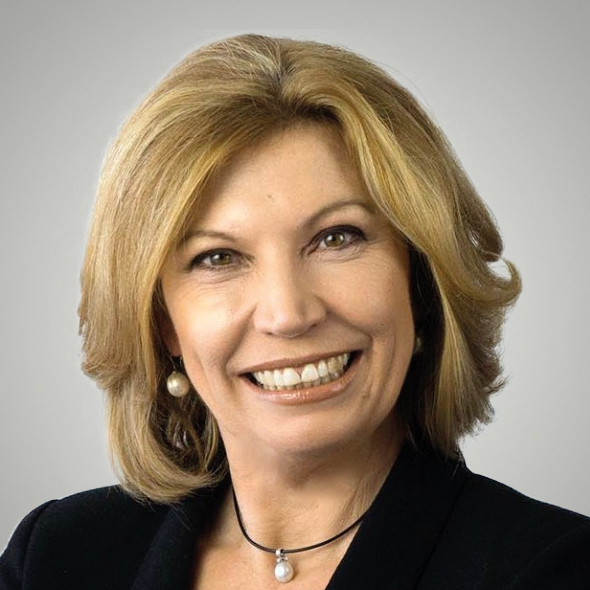Lendlease chair Michael Ullmer says it's important for directors to hold their nerve after the banking Royal Commission.
Michael Ullmer FAICD jokes that taking over as chair of global property and infrastructure group Lendlease amid the recent round of inquiries and commissions has been a bit like the dog who caught the car. “Now what do I do?”
In a textbook transition last November, Ullmer replaced the chair of 15 years, David Crawford AO, after nearly a decade on the board.
“Go back 12 months before the various inquiries, one would’ve thought you were enough to take on these sorts of roles,” says Ullmer. “It is a great honour to be nominated by your colleagues to lead the board.”
Aside from the various Royal Commissions, the building industry is also under scrutiny over shoddy practices, following the 2017 Grenfell Tower disaster in London and the more recent evacuation of Sydney’s Opal Tower.
“It has demonstrated that people are rightly very disappointed if organisations take a long time to fess up to problems, investigate and remediate them,” says Ullmer. “I think that’s a very legitimate frustration in the public.”
Ullmer is concerned that in the current environment the tolerance for mistakes is low. He says he has always worked on the premise that everyone makes mistakes.
“What’s important is facing up to them and remedying them appropriately, then learning from them so you don’t repeat the same mistakes.”
“In many cases, the behaviour was completely unacceptable but I wonder if this leads to an expectation that no mistakes will be made, or there will be little tolerance from the public, the politicians and the regulators. That makes operating in the real world extremely difficult.
“I think boards need to not be spooked into inaction through all of this but to go about their work in a revitalised way around the importance of having the right chief executive officer with the right values and capabilities, and having a clear strategy.”
Ullmer says people love to find someone to blame. At the moment, he says, it’s directors who are in the crosshairs.
“But I think we’ve got to be really careful to do our role properly.”
Ullmer is also a director of Woolworths, chair of the Melbourne Symphony Orchestra and a trustee of the National Gallery of Victoria.
In January, he was recognised for distinguished service to the performing and visual arts, and to the finance and banking industry, in the 2019 Australia Day Honours List.
“It’s a great honour, and I have been touched by the response,” he says.
As a former senior executive at National Australia Bank (NAB) and the Commonwealth Bank, Ullmer has watched recent events with more than a passing interest.
Born in the UK, he studied mathematics and became a chartered accountant. He was a partner at Coopers & Lybrand and KPMG before moving into banking. He was group executive of institutional and business services at Commonwealth Bank, and group CFO from 1997 to 2002. He moved to NAB in 2004, as finance director, then deputy group chief executive, before leaving in 2011.
“What that leads into is that a core focus for boards is getting a true understanding of what is being said at the top of the company,” he notes.
Ullmer says the other lesson reinforced from the Royal Commission is that boards have to “trust and verify” — to use an old banking and diplomatic phrase — what they are seeing.
“I think boards need to focus on how they can do that,” he says. “There will be a whole lot of things around commercial in confidence, but a key thing for board members to ask is, ‘If this ever did see the light of day, how would I feel?’”
He sees instilling that kind of thinking through management and down through the organisation can make it “safe for people to act consistently with that”.
“One of the things you have to do is have a clear set of values you bring to the organisation including what is personally acceptable and what you would be proud of. Organisations should be able to stand the test of public scrutiny in a way that you would hopefully be proud of and not embarrassed at the way a matter was handled.”
Ullmer says what he describes as “this very lax term of community expectations” is used too much.
“Community expectations are totally undefined and can mean whatever someone wants them to mean,” he explains.
“People love to have someone to blame. If there is a genuine community expectation that is not expected in the law, then politicians should change the law.”
Reflecting on history in the context of the debate about the purpose of the corporation and the primacy of shareholders, Ullmer says there’s economist Milton Friedman’s camp, which refers to the whole objective of corporations as the maximisation of profit for shareholders, and the likes of Lendlease founder Dick Dusseldorp.
“In 1972, [Dusseldorp] gave a speech talking about the need for companies to find a common interest that went beyond the bottom line profit to broader accountability to employees, to communities that the companies serve, and to the environment,” says Ullmer.
“That’s been part of the Lendlease ethos ever since. I think we’ve seen that play out through the role of the Royal Commission. If you don’t take those things into account, there is enormous damage to shareholder interests.”
Michael Ullmer is a speaker at the upcoming Australian Governance Summit. More information here.
Latest news
Already a member?
Login to view this content


